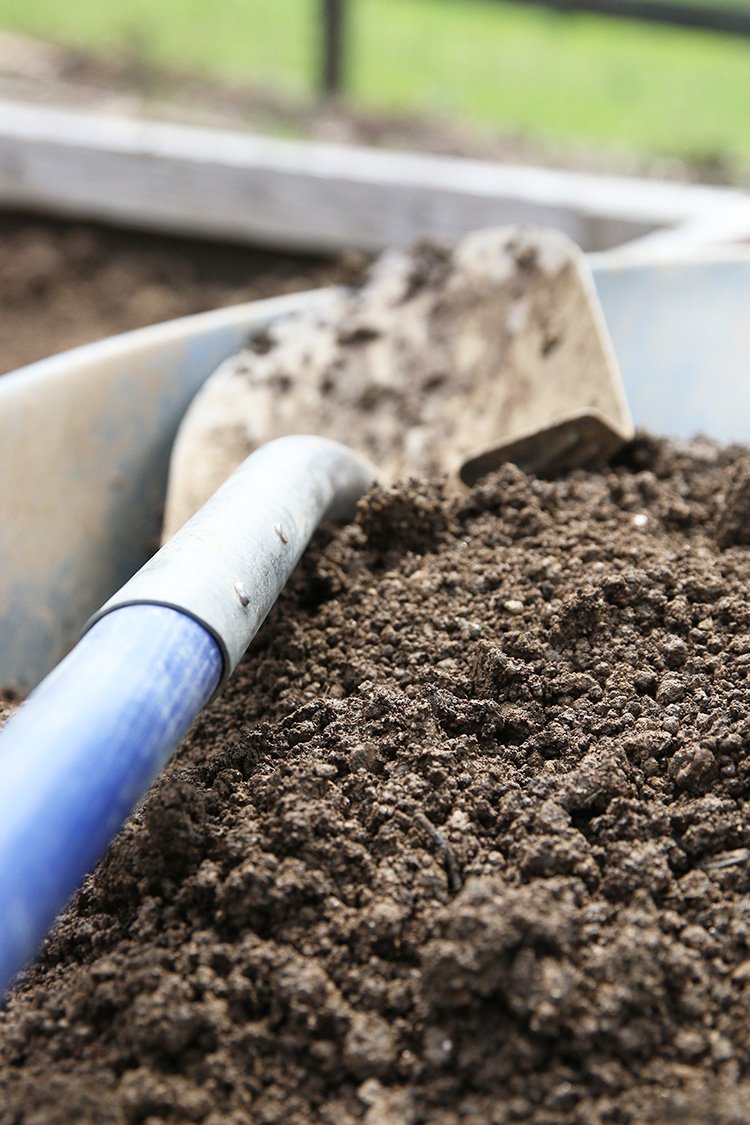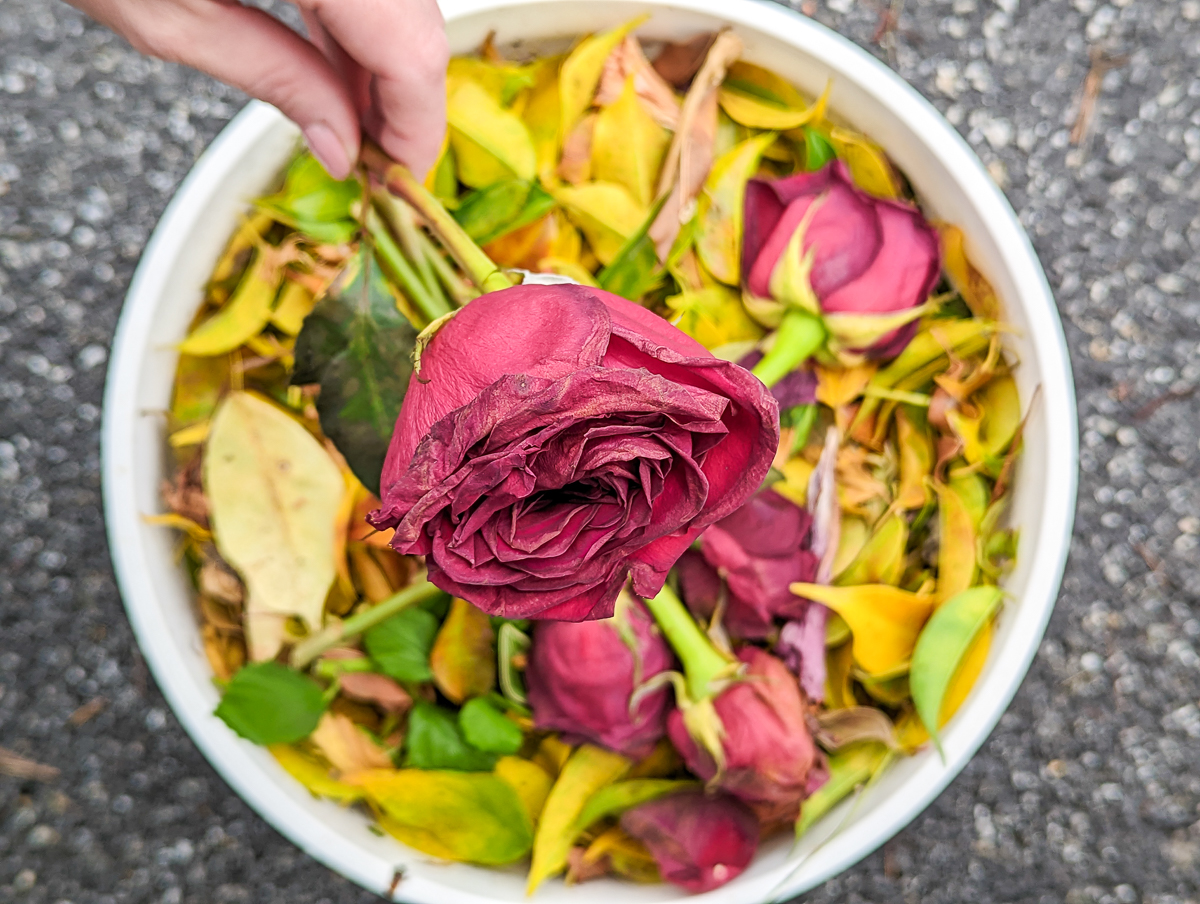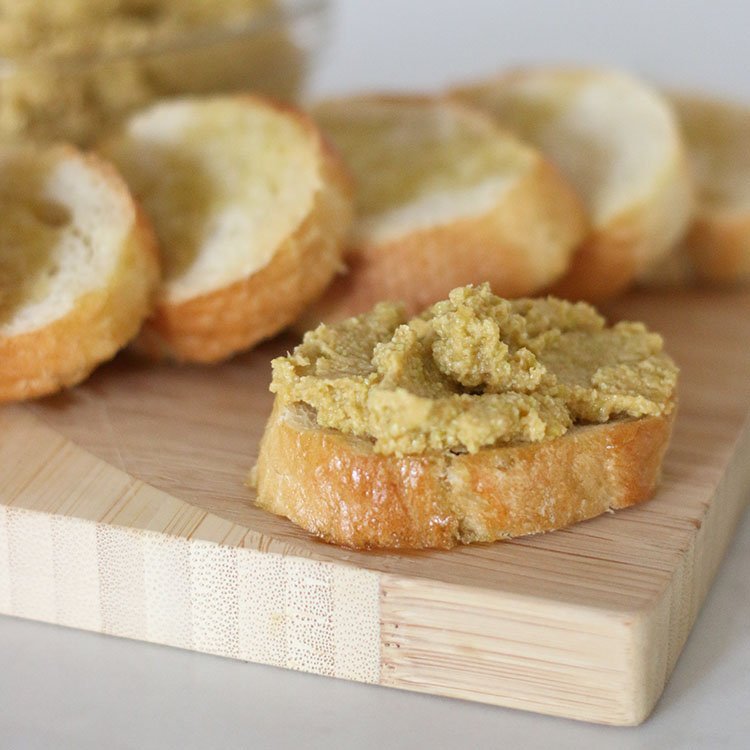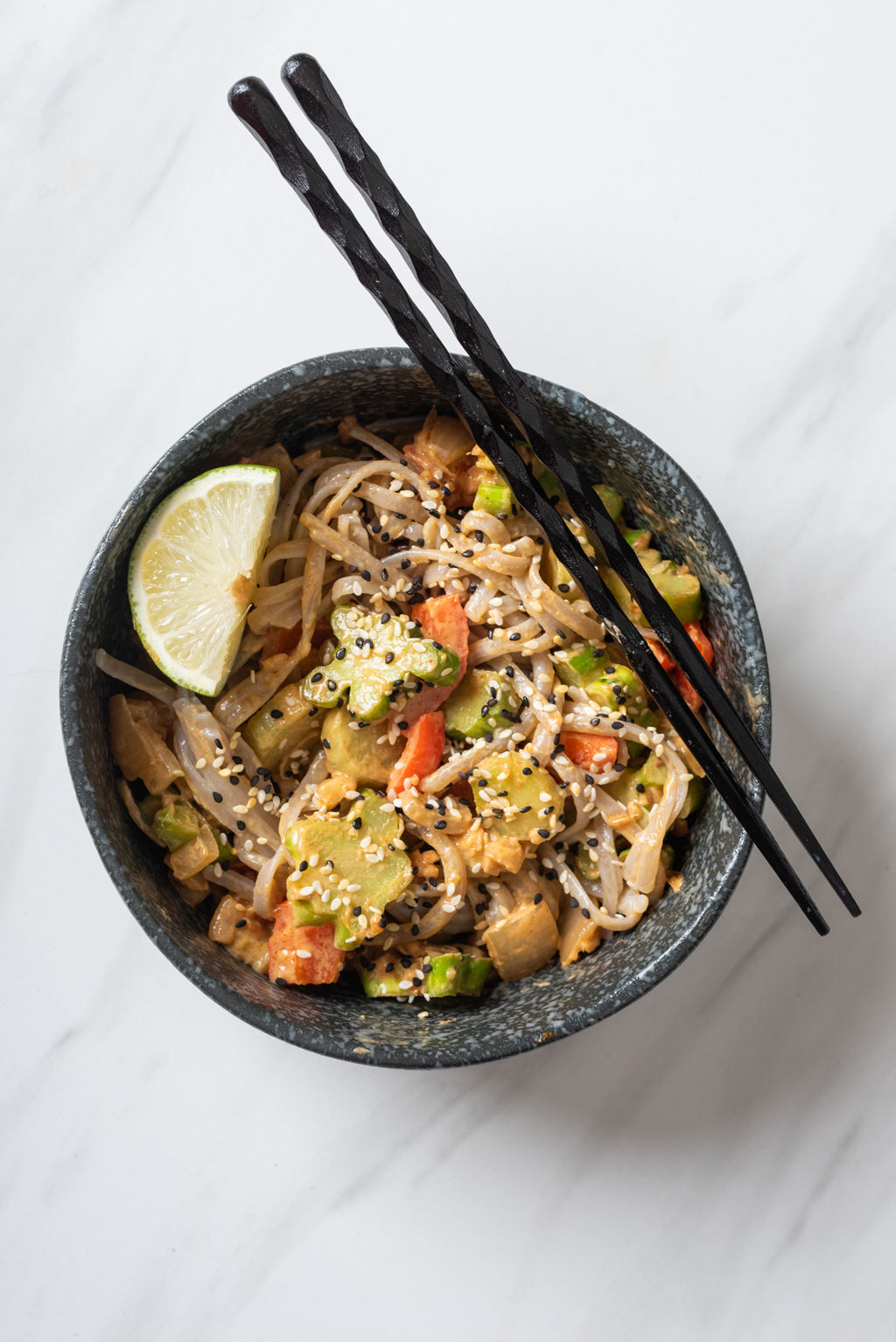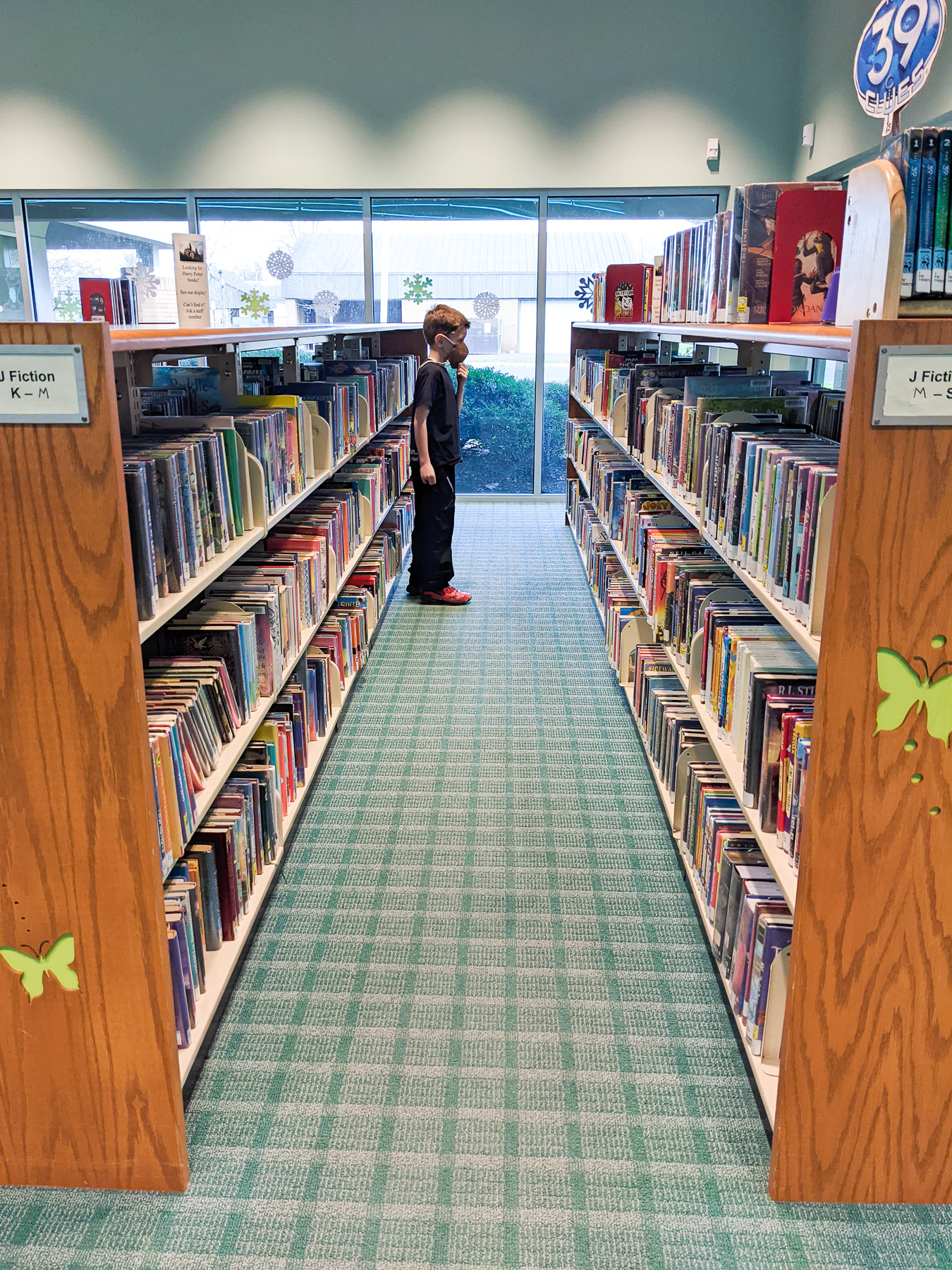Intro to Composting With Our Editor
Want some insight into how our founder and editor, Jen Panaro, became a composting nerd and what she thinks about helping others learn to compost? Read on for her interview with Apartment Therapy all about composting for beginners.
This post contains affiliate links.
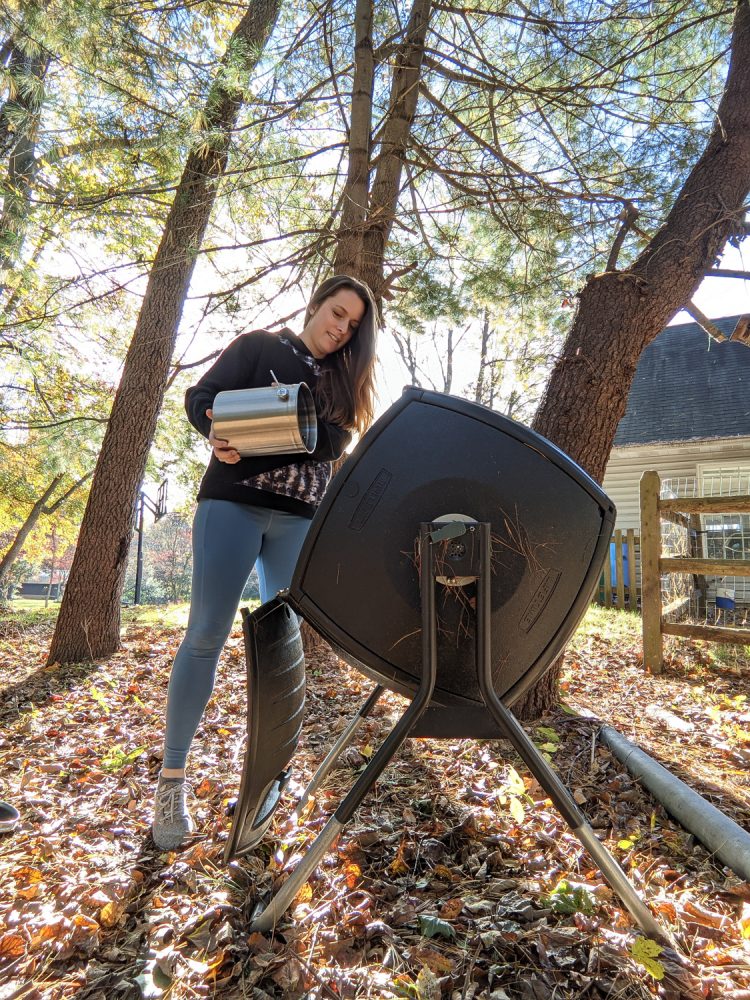
Two weeks ago, I received an inquiry in my Instagram DMs asking if I’d be available for some interview questions from Apartment Therapy about composting. Why yes… I love to talk about composting. You don’t have to ask me that question twice!
While they only included a few of my answers in their article and also reached out to a couple of friends to dote on composting as well (shout out to Sarah and Kathryn), I thought it might be fun to share the whole interview and give you some more insight into my adventure into the throes of food scraps, worm bins, windrows, and more.
Without further ado, my full Q&A with Apartment Therapy (AT) for their article about composting for beginners.
How long have you been composting at home? What made you start?
I’ve been composting for 6 years. I started composting when we moved to our new home after the previous owners left their compost bin for us to use. I was compost-curious before moving in, and having the compost bin already set up made it super easy to start experimenting. I had no experience and minimal knowledge about how to compost, so I’ve learned most of what I know through trial and error and lots of research.
I started sharing what I learned along the way on my eco-friendly living blog, Honestly Modern (right here), and it’s taken off from there. Now I compost at home using a bunch of different composting methods (because I like to try them out before I write about them for others), and I even started my own community composting side hustle, WasteWell, to help more people in my local area have access to composting at home.
What was the hardest part about composting when you first started?
The hardest part when I first started composting was finding the right mix of greens and browns to create good finished compost. It’s still not something I excel at. I generally approach it with a lot of trial and error and live by the mantra to Take a Peak, Take A Whiff, and Dig In to figure out what the compost pile needs. I add more greens when the pile looks too dry and more browns when the contents get too wet or start to smell trashy. You can fix almost any compost pile even if it’s gone astray.
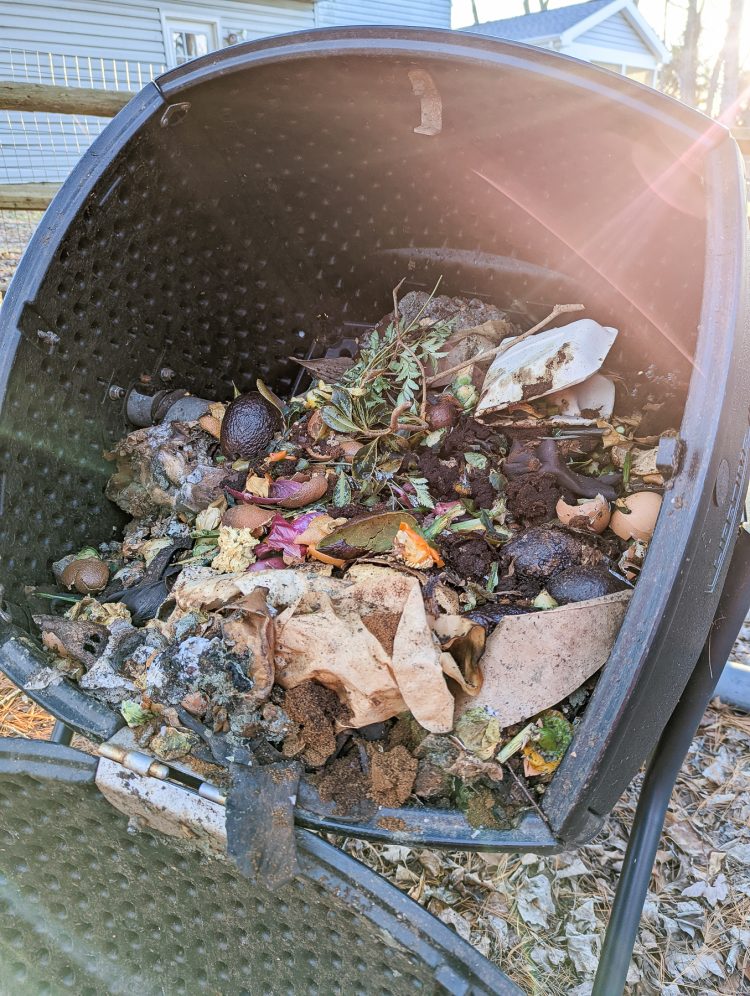
How do you use your compost?
I have raised bed gardens in my yard, so I use the finished compost to replenish the soil each spring before I plant flowers and vegetables. However, if I didn’t need the finished compost, I would probably offer it up to neighbors to use.
What do you think is the biggest barrier to entry for people who have never composted before?
I think the biggest barrier for people to start composting is the fear that it’s gross, smelly, and will attract pests. In reality, though, most composting doesn’t cause any of those problems, especially inside the house.
Lots of people seem to think it’s gross to collect their food scraps in a bucket under their sink. But most people already keep their food scraps in their trash can which lives under their sink or in their kitchen. They forget that separating food scraps and disposing of them through a different waste stream (i.e. composting) isn’t all that different from what they do now.
Are there any misconceptions about composting that people have, in your experience?
Related to the initial fears or barriers, most people think composting is a lot grosser than it actually is. This is especially true if you aren’t managing a compost bin yourself.
Separating food scraps from other trash and leaving it out for collection or dropping it at a community compost site are hardly different than sorting trash and recycling and leaving them at the end of our driveways or dropping them in community trash receptacles.
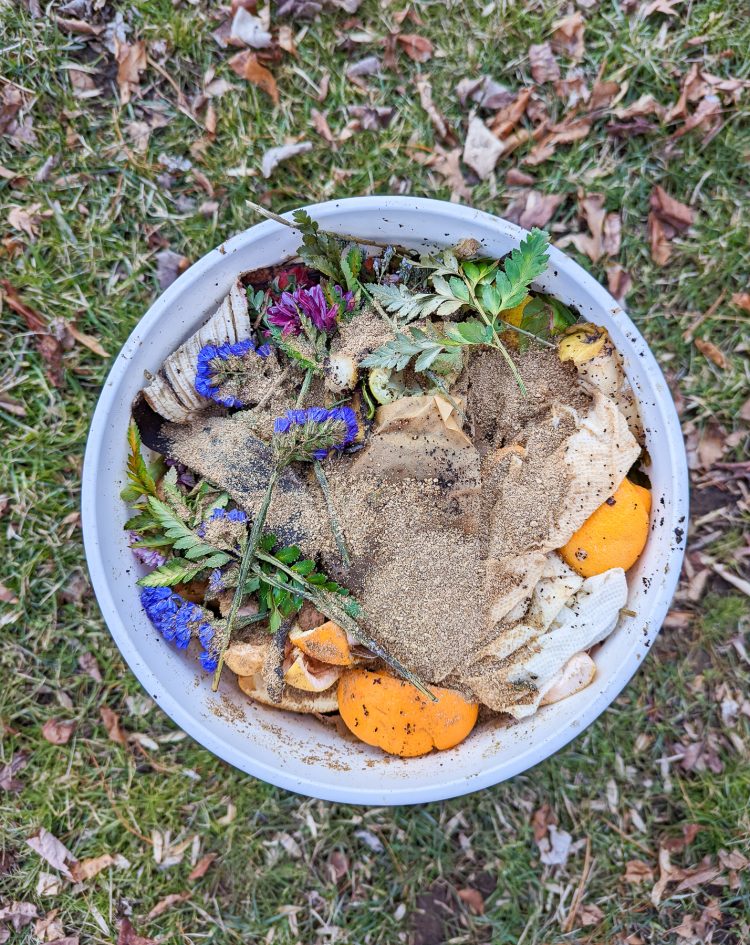
What are some of your favorite resources for total beginners?
If it’s accessible, I highly recommend using a service to get started. It’s so easy, and it’s a great way to get used to separating food scraps and learning what you can compost before having to manage a compost pile yourself. If you use a compost collection service, you really shouldn’t need any other resources. They will provide instructions about what they collect and how to use their service.
After a period of time, if you like to have the finished compost for your own garden or soil, you can transition to managing a vermicomposting or outdoor composting bin yourself.
If you’re ready to compost on your own, I think WasteWell has some great resources (I have to say that, right?). I also love @compostable.kate on Instagram. My favorite book on composting for beginners is Composting for a New Generation: Latest Techniques for the Bin and Beyond by Michelle Balz.
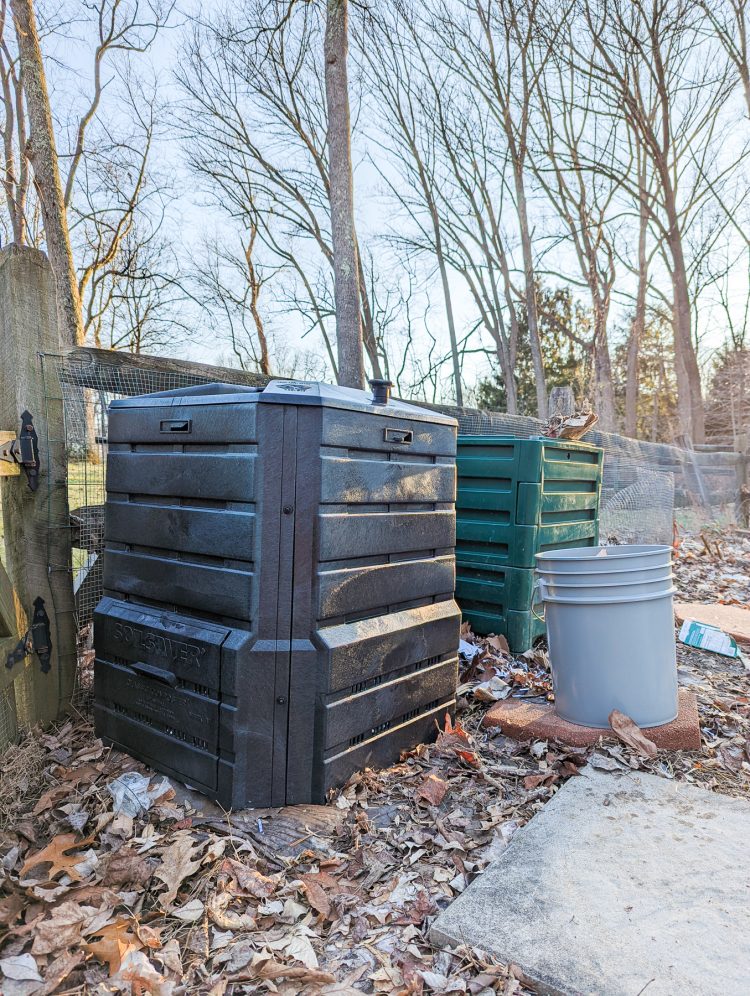
Is there an at-home compost bin you’d recommend?
There are two types of composting containers to consider. Everyone will need some type of container to collect food scraps on a daily basis. You might use a small countertop container or even store your food scraps in the freezer in a reusable bag or takeout container. We shared a bunch of options for storing food scraps on WasteWell.
If you are storing food scraps on your counter, which is what I do at home, I highly recommend a countertop bin with a charcoal filter inside the lid. It really helps eliminate any issues with fruit flies, especially in warm weather.
If you manage the compost processing yourself, my favorite outdoor containers are the Subpod for vermicomposting and the Soil Saver (my favorite vendor for this is Uncle Jim’s Worm Farm) if you prefer to manage a bin that sits on the soil and requires turning periodically.
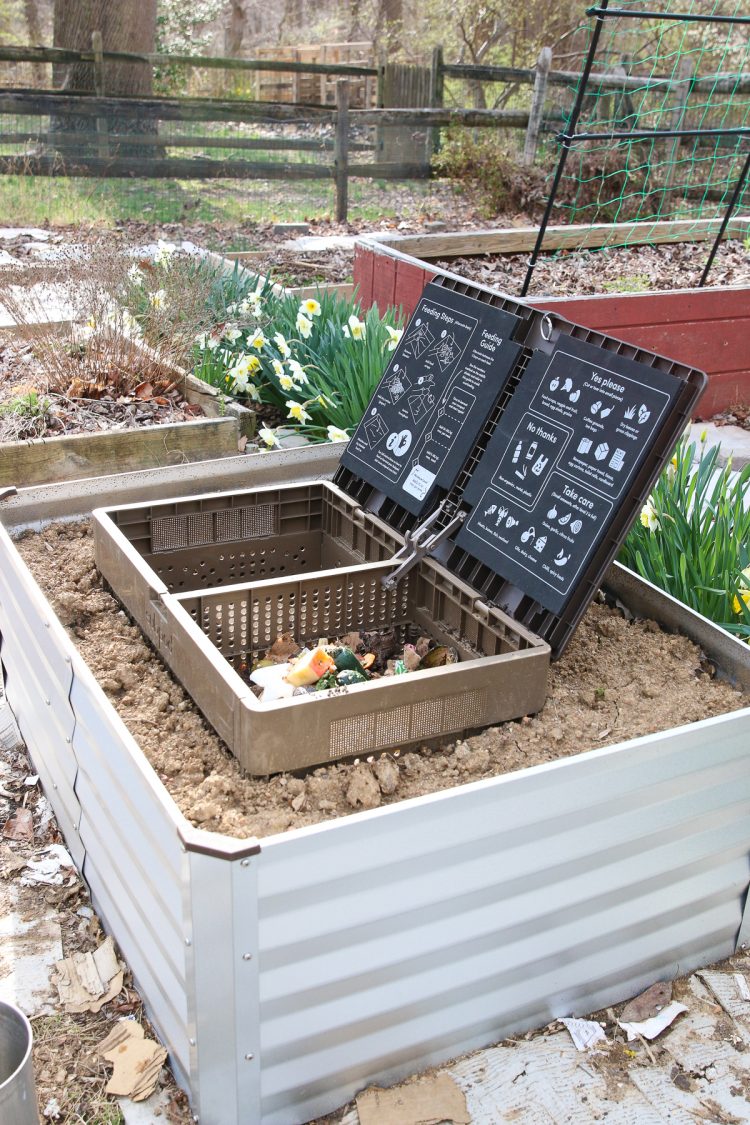
Can people compost if they don’t have a lot of space at home, or if they have no outdoor space at all?
Yes. I believe just about everyone can find a way to compost. If you don’t have any outdoor space, you can subscribe to a collection service, as I mentioned above, or drop your scraps at a community drop-off location. There are also indoor worm composting systems that don’t require much space, though they do require a bit of attention to care for the worms.
Lastly, you might consider an electric composting appliance. These are not my favorite options to recommend because they do require energy to process and don’t manage significant volumes of food scraps well. But they can be a good alternative for someone living in a small space who doesn’t have access to a collection service, community composting, and can’t or doesn’t want to manage an indoor worm bin.
What’s the biggest mistake people make when they first start composting?
Most people don’t realize just how much they can compost, so a lot of people compost less than they can when they’re just getting started.
For those who manage an outdoor bin (that quintessential composting pile that requires periodic turning), many people add too few brown materials like dried leaves, paper, and cardboard. They end up with a wet, mucky mess of nitrogen-rich greens.
But you can easily fix this by adding more browns, turning periodically, and patiently waiting for the composting magic to happen. We have access to lots of different types of compost browns, so there should be plenty to balance the food scraps.
Do you have to have worms to make good compost?
It depends on the type of system that you use. If you use a vermicomposting system, then you will need to have worms. If you manage an outdoor pile that sits on the soil, you do not need any additional worms. The worms already in your soil will find their way up to the food scraps and eat through the organic matter like champs.
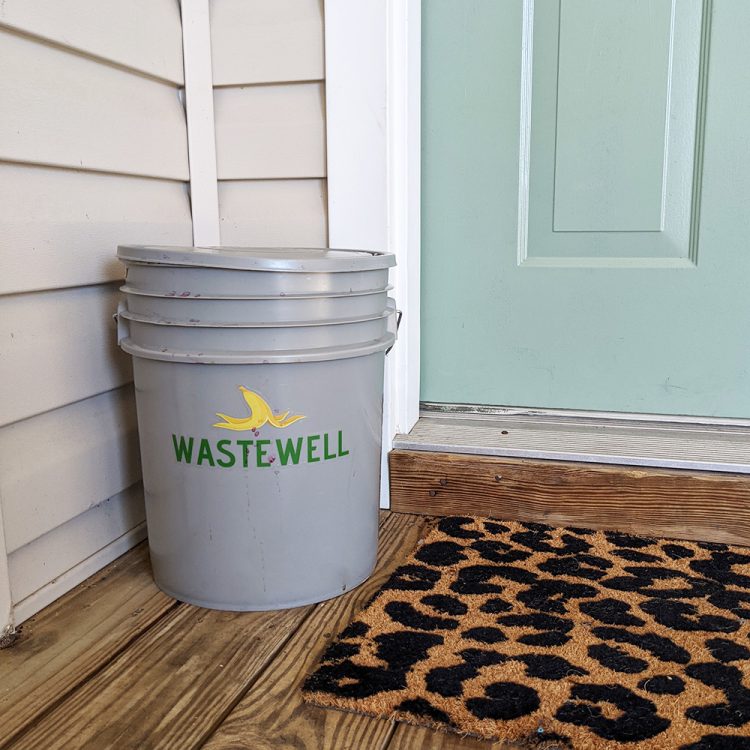
You founded WasteWell, a composting service for your local community. Do you know approximately how many buckets of compostable scraps your service has brought in?
WasteWell is quite small right now with just under 40 customers, yet we’ve collected over 11,000 pounds of food scraps from our small customer base. It’s pretty amazing how quickly the amount of waste we divert from landfills adds up when we all do our part.
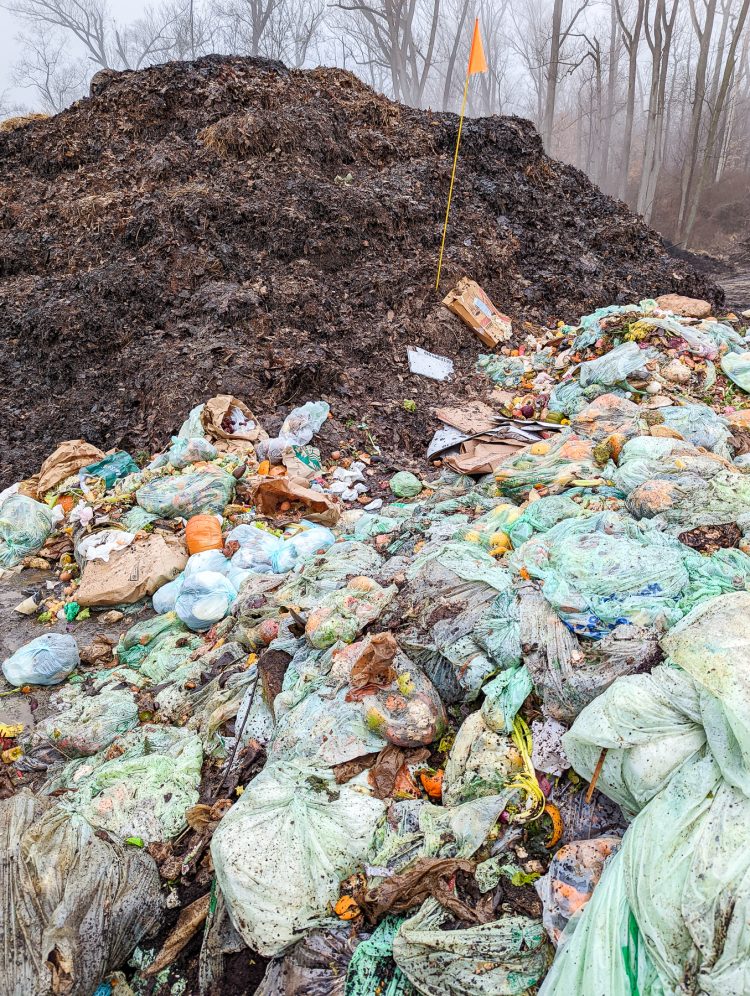
Any other advice for anyone who’s never composted before on getting started?
It’s not gross (seriously!), and the environmental benefits are huge, so just get started with whichever composting system is most accessible to you. There are very few compost mistakes that can’t easily be fixed.
If you’re unsure where to start, send WasteWell a DM on Instagram (@wastewell). We’d love to help more people find the right solution to compost at home and help them overcome the hurdles of compost overwhelm.
As far as food scraps sitting in a bucket or container in your kitchen, don’t be grossed out. They’re already sitting in your trash can, and unlike your trash can, your compost bin will have a lid, specifically designed to reduce smells and insect issues. In fact, when you compost, your trash will be less stinky, and you will feel great about how much less waste you produce and the environmental benefits of your actions.
Got any other questions for me about how I dove headfirst into the composting world? Leave a comment or shoot me a DM on Instagram @honestlymodern and drop all the details on you.

Jen Panaro
Jen Panaro, founder and editor-in-chief of Honestly Modern, is a self-proclaimed composting nerd and advocate for sustainable living for modern families. To find her latest work, subscribe to her newsletter, Stepping Stones.
In her spare time, she’s a serial library book borrower, a messy gardener, and a mom of two boys who spends a lot of time in hockey rinks and on baseball fields.
You can find more of her work at Raising Global Kidizens, an online space to help parents and caregivers raise the next generation of responsible global citizens.

